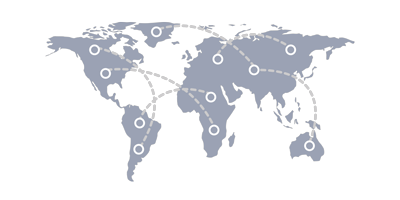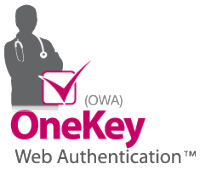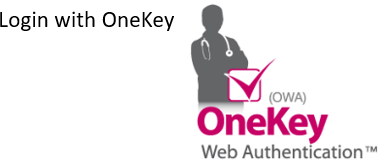





patient with high temperature of unknown ethiology
43 addict man have high temperature more than 38 degree during 14 ldays, pain in the left leg and in the lower left part of the abdomen. He cant stand on the leg due to severe pain. The leg is not changed visiouly. C-reative proteine is increased 33 mg/l, rate of sedimentation is 34. THe man accept buprenorphin and salts intravenous. What is the problem with the patient? How to treat him? Thanks for every Idea.
Dr. Google isn't always right
Hey colleagues, I’ve seen some truly baffling cases over the years, but the amount of misinformation patients pick up online has reached another level! What are some of the wildest or most unusual cases you've encountered, especially those where patients came in with a 'diagnosis' or 'treatment' they found online? Looking forward to hearing your stories!
16 year old boy with blunt force trauma to scrotum
I had an interesting trauma case this past weekend that I thought would be fun to share here. A 16 year old boy with no past medical history presents to the after BFT to the scrotum during a basketball game. The injury happened 3 hours ago and the boy is in significant pain with swelling and hematoma on scrotal physical exam.
US reveals the following:
How should we proceed with this patient? What long term effects (if any) would you counsel the patient on?
Thanks in advance for your insights!
Facial nerve monitoring habits in head and neck surgery
I was visiting a colleague of mine in the US and she invited me to scrub into a parotidectomy with her. I was shocked when she didn't set up EMG for intraoperative facial nerve monitoring. In Korea we almost always use nerve monitoring when operating near the facial nerve. I know that there are not concrete international guidlines but this got me very curious about what differing practices are in different countries and healthcare systems.
I would greatly appriciate if you could outline your nerve monitoring habits in the comments.
Have a great day.
26 year old with severe RUQ abdominal pain
An otherwise healthy 26 year old female presents with severe RUQ abdominal pain. Eventually during an elective laperoscopy the following image is taken:
Effect of Upcoming US Elections on Reproductive Rights
As a healthcare provider I have been struggling with the issue of reproductive rights and their relevance in the upcoming US presidential election. On the one hand, my job is to treat patietns and care for them - not dictate policy. On the other hand, if policy interferes with my ability to care for my patients in the best way possible, should that not influence how I vote? My question is if you think healthcare policy is something doctors should be outspoken about and should lobby for? Is this something that should be left up to lawmakers? Thanks in advance for contributing to the interesting conversation.
M&M - 3 year old girl in septic shock with delay in fluid resuscitation and antibiotics
I would like to share a case I recently presented at a morbidity and mortality meeting. This case has deeply affected me and I am comitted to learning the hard lessons so as not to repeat them. I would love to hear your constructive criticism about this case. Ciritcal details have been altered to protect the patients identity.
Lucy, a 3-year-old girl with no relevant past medical history, arrived at the emergency department with high fever, lethargy, and rapid breathing after two days of worsening illness, including a sore throat, mild cough, and decreased responsiveness. Upon arrival, Lucy had a fever of 40.3°C, tachycardia of 155 bpm, tachypnea of 45, and borderline hypotension with a blood pressure of 82/50. Her capillary refill time was prolonged at 4 seconds, and she appeared visibly distressed. Recognizing the seriousness, I ordered a sepsis workup, fluids, and broad-spectrum antibiotics. However, treatment was delayed due to a busy ER with limited resources and staff availability that evening, which led to a backlog in addressing critical cases. At first, this delay was not considered significant - we anticipated that timely IV access could be achieved in a straighforward manner at whch point we would focus on stabilization. When it became evident that obtaining IV access would be harder than usual, given no immediate signs of rapid clinical decline, it seemed reasonable to continue with attempted IV access rather than shift to an intraosseous (IO) access. This, however resulted in the administration of fluids and antibiotics being delayed by close to an hour.
As Lucy’s condition deteriorated, the team administered additional fluids and antibiotics, but her signs of septic shock persisted, requiring her transfer to the PICU. En route, Lucy became unresponsive and was intubated. Despite aggressive intervention, blood cultures later confirmed Streptococcus pneumoniae septicemia, and she developed multi-organ failure, succumbing to her illness within 36 hours.
What are some pro tips you have for triaging patients in shock given an overwhelmed ER? Should I have switched to IO access sooner to get fluids and antibiotics in her faster?
Thank you for your helful insights and thoughts.
Abnormal Physical Exam Findings
46 year old obese male with family history of breast cancer
I have a 46 year old male patient in my clinic who is quite obese. His mother died a few years ago from triple negative breast cancer and his sister recently underwent a biopsy for a suspicious breast lump - we are still waiting on the results. My patients is totally asymptomatic but do you think despite breast cancer being rare in males, that he ought to get screened? Given his body habitus it might be even harder for him to notice a lump growing in its early stage.
How would you broach this sensitive topic with him?
Thanks for your insights.
45 year old woman with constipation and dyspareunia
I have a 45 year old patient with constipation and dyspareunia. She is healthy and never been pregnant and still getting her period. We have tried a host of different laxatives though none have been effective. She has also undergone a cystoscopy for bladder related issues that revealed no abnormalities. She experiences pain during intercourse that lasts for hours after. I was talking to a friend who is a physical therapist who said the constipation and pain during sex could be related. He explained that constipation can cause cramping of the pelvic floor leading to painful sex and that physical therapy could really help my patient.
Has anyone heard of this connection before in your clinic (or personal life)?
Young girl with Severe obesity ( 220 Kg) due to MC4R homozygote mutation
Early-onset and severe genetic obesity from age 2 years old, associated with extreme Hyperphagia.Now she is 17 years old with a weight of 220 kg, 1m70, BMI: 76.
Hypertension, severe sleep apnea, restricted walking distance < 5 meters and complete assistance for all activities of daily living.
GLP-1 analog Dulaglutide 1.5 mg/week, has been tried for 3 months with poor results.
Hypothyroid crisis cause and treatment options
Dear Drs, a little help with this case please. A 76-year-old woman presented with abdominal pain and was found to have an internal hernia causing bowel obstruction. She underwent surgery which was initially uncomplicated. Her medical history included hypothyroidism managed with levothyroxine 150mcg, though she had been partially nonadherent recently. In the postoperative period, she developed complications including an ileus, inability to take medications orally, and remained off levothyroxine for 10 days.
Hyperprolactinaemia in a male child
Hi, a 10 year old boy with diagnosed autism spectrum disorder, ADHD. and migranes, was referred to us for raised prolactin. He has been under the care of neurology for migraines
5-year-old female with a unilateral deficit in the left eye involving the inferior oblique and superior rectus muscles.
Dear Colleagues,
I need assistance with a case involving the following situation: Since April 2024 to the present, we have a case of a healthy 5-year-old female presenting with a unilateral deficit in the left eye involving the inferior oblique and superior rectus muscles. This occurred during an infection with Human Herpesvirus 6 (HHV-6), characterized by prolonged
Is there any benefit to very high SPF sunscreen
I know summer is almost over (in the northern hemisphere) but I had a question about sun screen and I thought I would ask it here. I heard that over SPF50 there is no real difference (other than price). I was wondering if this is really true or not. I am quite pale and so are my kids and melenoma runs in our family so as you could imagine I am quite hawkish about applying and reapplying and I wanna make sure I am doing everything I can - but if i could get away with buying cheaper sun screen I wouldn't be upset. What do you all recommend?
I heard a doctor claim a patient 'didn't need' HPV vaccination
Dear colleagues,
A friend's 24-year-old daughter was reviewing her medical records and realized she never got the HPV vaccine. Her doctor said she didn’t need it, but I understand the CDC recommends it for women under 27 and it's approved up to age 45. Since guidelines and individual practice can differ, I’m conducting an anonymous poll to see what doctors here actually advise their patients to do.
Thanks in advance, and I’d appreciate any thoughts in the comments!
17 year old with skin lesions
A 17-year-old girl presented with linear lesions on her face and abdomen that had persisted for 11 months, causing significant school absenteeism. The lesions appeared suddenly, were asymptomatic, and healed quickly but left behind pigmentation changes and scarring. Despite normal hematological investigations, the patient exhibited an apathetic demeanor and provided an incomplete history. Clinical examination revealed well-defined excoriations, erosions, and scarring, primarily on the face. Dermoscopic findings showed distinct zones of hyperpigmentation, hypopigmentation, and central crusting.
How would you continue managing this patient's care?
New spot after sun exposure
I have a 58 year old patient who just came back from a monthlong cruise where she claims to have spent much time in the sun without being careful about sunscreen. She has noticed a new mark on her face and I am not sure if this is concerning and warrants further care - though I am inclined to refer her to a dermatologist.
Is new Alzheimer's disease drug 'the biggest breakthrough' in decades?
The UK has approved the use of Lecanemab, a drug for Alzheimer's, which has been hailed as a "wonder drug" for its potential to slow the progression of the disease. Lecanemab targets amyloid plaques in the brain, which are believed to contribute to Alzheimer's, and has shown promising results in clinical trials. The approval marks a significant step forward in treating the condition, offering new hope to patients and their families...Read more.
Are you optimistic about this new drug?
What is the current attitude towards heated tobacco products?
Recently I have seen many people using the "heat-not-burn" electronic cigarettes and I am not sure what to think about this trend. I know they are supposed to be better than regular cigarettes and vapes but the CDC seems ambivalent.I am curious if any of you have insight on these products and what you tell patients who ask about them.
Thanks in advance!
21 year old woman with fainting spells
A 22 year old woman presents to the ED after fainting for the 3 time in one week. She has never fainted before these episodes began and describes a fluttering feeling in her chest.
How old is too old to be a practicing doctor?
Medical Boards around the world are considering new regulations for doctors aged 70 and older due to an increase in complaints against them. In Australia, for example, they are proposing options that include mandatory detailed health assessments or general health checks to ensure their fitness to practice. The current rule, requiring doctors to self-assess their health, might be retained. Concerns about age-related cognitive and physical decline and the rising number of patient complaints have driven these proposals. While aiming to enhance patient safety, these measures might be seen as discriminatory and could potentially prompt older doctors to retire, affecting the healthcare workforce...Read more.
What appropriate and respectful measures could help ensure fitness to practice?
Severe hyponatremia, unsure if head injury related or drugs?
Hello, a case with a 47 y/o male with a history of diabetes and hypertension, who presented to the emergency department with headache, blurry vision, and nausea. He was knocked over by some wavesat the beach four days ago and suffered from a brief episode of loss of consciousness. He also has a history of heavy alcohol use. 3months ago, he started taking 50mg of chlorthalidone. Now he hashas severe hypoosmolar hyponatremia of 99, potassium of 2.2, magnesium of 1.1, lactate of 3.7, high anion gap of 14, glucose of 212 and serum osmolality of 214 (mOsm/kg). Urine output is normal. CT head also didn't show any findings. We are currently waiting for urine osmolality results and we have updated the nephrology team as well. Given his dire situation, what could be the cause of his severe electrolyte imbalances, is the loss of consciousness relevant?
4 year old girl with developmental regression
A 4-year-old female with developmental regression over 1 year, including loss of purposeful hand movements, speech, and motor skills. Also shows hand-wringing, irregular breathing, and frequent unexplained crying, microcephaly and muscle stiffness.
This concerns me as possible Rett syndrome but I have never actually seen someone with this before. Do you have any insights on what this is and how to manage this patient?
As a patient, should I identify myself as a doctor?
Help me out here. My husband and I were at the emergency department over the weekend with our 9-year old who had fractured his leg. In the waiting room, we argued over whether we should identify ourselves as doctors. I personally think it's unethical to pull the 'I'm a doctor' card and hope for favors this way (eg. jump the queue etc.). On the other hand, my husband argues that we don't really get any benefits as doctors working in the NHS anyway..
Over 50% of physicians feel underpaid a G-Med Poll reveals

G-Med has conducted poll exclusively for physicians to gain insight into physician satisfaction with their current income. The poll included 336 physicians who were asked whether they believed they were being paid what they're worth. According to the results, over 50% of physicians did not feel that they were being paid what they deserved, with only 20% stating that they were content with their current income. Additionally, 20% of the respondents believed they could earn more if they worked in a different country, which could indicate that there are significant pay disparities in different regions of the world. Moreover, 4% of physicians reported that they earned more before the COVID-19 pandemic, which suggests that the pandemic may have had an adverse impact on physicians' salaries.
It is crucial to acknowledge the importance of fair compensation for physicians' dedication and expertise. These results reveal that there is a significant proportion of physicians who do not feel adequately compensated for their work. This could have implications for physician recruitment and retention, as well as patient care quality. It is vital for healthcare organizations and policymakers to address the issue of physician pay and ensure that physicians are fairly compensated for their contributions.
Why It's Still Hard to Get Into Medical School Despite a Doctor Shortage
With a worsening doctor shortage, with more than half of med school applicants being rejected from medical school. Dr. Jesse M. Ehrenfeld, president of the American Medical Association, highlighted this crisis, noting the severe impact on rural communities and medical education. The demand for physicians is projected to rise significantly by 2034, but simply increasing medical school admissions, which has been happening significantly in the past 22 years, is not enough due to limited clinical training sites and faculty. Experts emphasize the need for more residency programs and teaching doctors, as well as innovative solutions like those implemented by Texas A&M's Rural and Community Health Institute, to effectively address the shortage and improve healthcare access.
Regardless of where you practice medicine (in the US or not), please weigh in in the comments about how the doctor shortage has effected your practice... Read More
Do reports like this make you anxious about the future of healthcare?What do you think we can do to most effectively address this issue?





